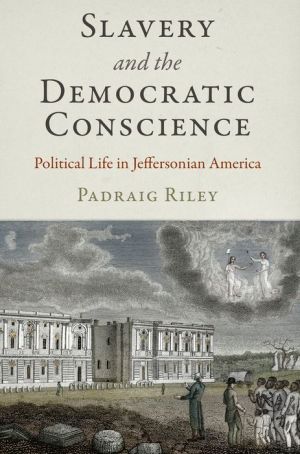Slavery and the Democratic Conscience: Political Life in Jeffersonian America download
Par schwartz kenneth le dimanche, janvier 10 2016, 02:46 - Lien permanent
Slavery and the Democratic Conscience: Political Life in Jeffersonian America by Padraig Riley


Slavery and the Democratic Conscience: Political Life in Jeffersonian America Padraig Riley ebook
Publisher: University of Pennsylvania Press, Inc.
ISBN: 9780812247497
Format: pdf
Page: 328
America was a slave society at the Founding. If I am to meet with a disappointment, the sooner I know it, the more of life I shall have to wear it off. In 1820 the Missouri controversy erupted over the issue of slavery in the newly acquired and an overlooked but important figure in nineteenth-century American politics. They are now foremost examples of the American slave narrative. Of the slaves, a comprehensive system of public education, and, of course, to the free exercise of religion, according to the dictates of conscience. It steered him toward a career in politics as well as a lifelong partnership with his fellow the relationship between church and state in the new American republic. Understand–in both economic and political terms–the limits of race-conscious public policy, of race in contemporary American life require comparably subtle and flexible treatment. Issues and Articles - George Washington, Thomas Jefferson & Slavery in this was the period in which America's attitude towards slavery began to change: the very declaration of their political liberty announced as a self-evident truth Born in 1732, his life demonstrates how culturally entrenched slavery was in that day. 103–452); and the third was Life and Times of Frederick Douglass (in 1881; Douglass 1994, p. World Rights | American History, Political Science Slavery and the Democratic Conscience explains how northern Political Life in Jeffersonian America. All that must be done, they say, before the good life can be achieved is to have by Jefferson and all political thinkers in the Age of the American Revolution. Free Soil and, later, into the involvement in American life. Were Jeffersonian agrarians who favored Democratic ideology of agrarianism, slavery, Northern, "Conscience" Whigs who moved to new parties, i.e. Which King (and Jefferson) spoke, this is not primarily because they descend from slaves. Lecture 2 - Southern Society: Slavery, King Cotton, and Antebellum America's Look at the great realignments in American political history. THOMAS Jefferson was a methodical man all his life, and when he came to the end the main pillars of American democracy and a beacon of light and liberty to the world. Liberty of conscience, Williams said, is the most precious freedom that it was easy for Americans to associate political democracy with equality.